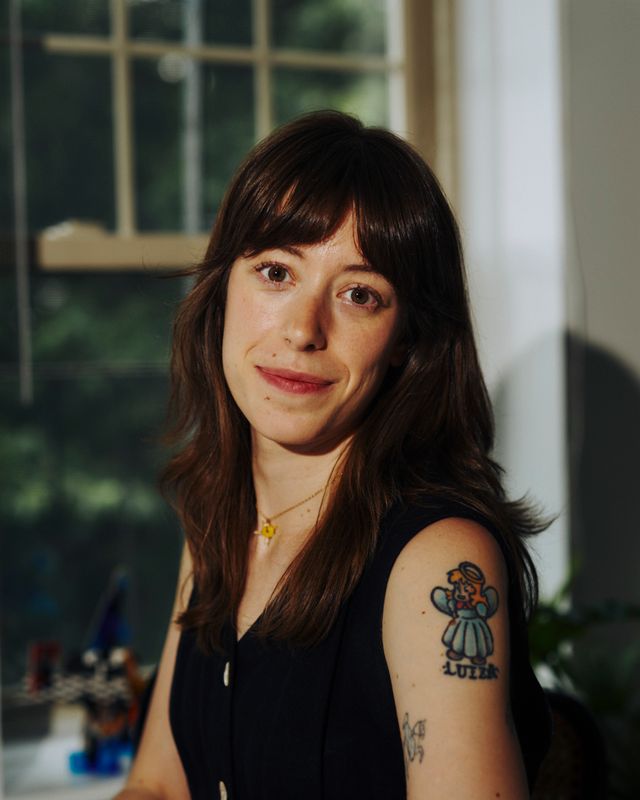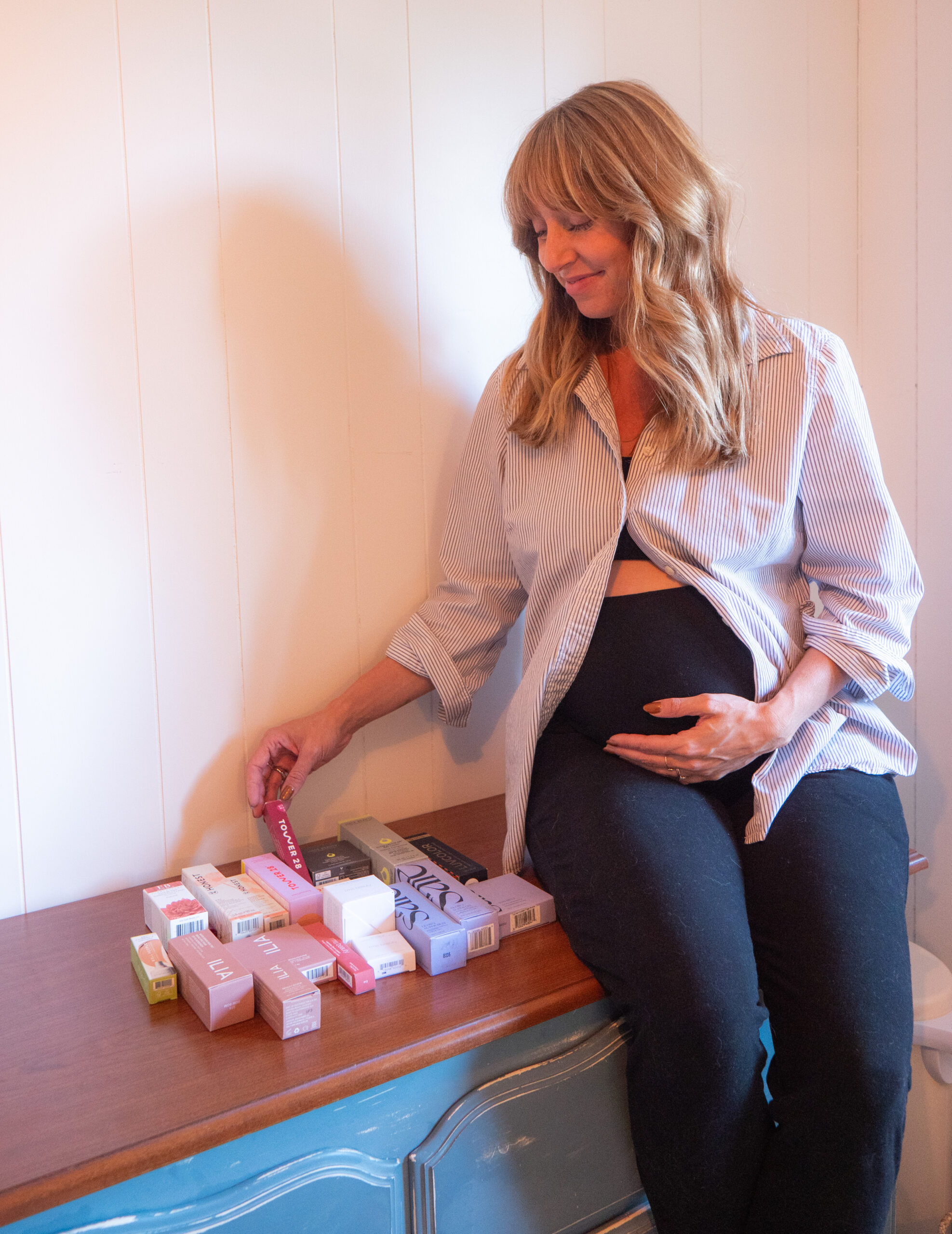
Why Is Everyone Obsessed With French Parenting?
Since the 2012 release of Pamela Druckerman’s “Bringing Up Bébé,” Americans have been under the spell of French parenting. There are hundreds of Reddit threads, thought pieces, and YouTube videos that dissect the virtues (and less often, the pitfalls) of French parenting in general, and Druckerman’s book in particular. All for good reason because, among other insightful forays into French parenthood, the book offered a French solution to the problem of sleep training. The promise of babies sleeping through the night after only 2–4 months remains an enticing prospect for sleepless caretakers throughout the US. And guess what? This actually happens in France. But the question for Druckerman and those reading her book is not only what do the French do in raising their children but: How do the French know what to do?
“These cultural norms are so wide-spread, they barely register in the consciousness of the Frenchwomen.”
Druckerman rehearses this question about the French repeatedly, especially on the topic of food. None of the mothers she interviews acknowledge a common source for their feeding schedule, so how is it that all French babies seem to eat at the same times? (That would be morning, noon, 4 p.m., and 8 p.m., for those curious.) It turns out that much of what Druckerman discovers can be traced back to a cultural norm, hence the focus on French parenting. She finds that these cultural norms are so widespread, they barely register in the consciousness of the Frenchwomen. When Druckerman interviews them, they speak about how all children are different. And yet the daily goûter, the national snacktime for French children, happens promptly at 4 p.m. daily and most always includes something sweet.
“Could it be that the French have some kind of maternal instinct leading them all to the same conclusions?”
Could it be that the French have some kind of maternal instinct leading them all to the same conclusions? The enigmatic maternal instinct has always had a particular appeal. But the tide has turned on the subject in recent years, with feminists arguing against the existence of an innate motherly instinct, and one article in the New York Times claiming, “Maternal Instinct Is a Myth That Men Created.”
As Sigmund Freud had already discovered 100 years earlier, humans are ruled by something different than animals, something he called drive (Trieb) as opposed to instinct (Instinkt). (Part of what differentiates us from animals, making us less dependent on our instincts, is our immersion in language — more on that later.) It’s telling that both terms were translated into English as the same word: instinct. This is a comforting but misguided idea of what it means to be a human. While the move away from instincts is liberatory — especially for women in this context — the thought that there is no instinct nor manual for having a child (much less anything else in life) is scary. That’s probably why we spend so much money trying to find one.
“The thought that there is no instinct nor manual for having a child (much less anything else in life) is scary.”
For the French, it appears there is actually a manual. Or at least an official book, “a carnet de santé,” given to every newborn and their parents in French hospitals. It’s a log that French parents take to their children’s medical appointments through adulthood, functionally a record of every French child’s growth. But I’m only kidding (and borrowing Druckerman’s joke, at that!): The book doesn’t contain any magical rules or shortcuts for French parents. Really, if there were to be a rulebook, it would likely be something by Françoise Dolto.
Dolto is a famous French psychoanalyst — for those in the US this is hard to imagine — who throughout the 60s and 70s hosted popular radio shows where she accepted call-in questions from the French public on parenting. (It turns out that things didn’t always come so naturally to the French.) Her work established a new parenting standard for the country, and a network of community spaces where her theory would be lived throughout France.
In short, Dolto’s work addresses the question of what a child is. The answer: A child is a person. And for her, a person should be spoken to and subject to certain limits in order to thrive.
Compare this to her Anglophone colleague, another psychoanalyst with a radio show, Donald Winnicott’s, take: There is no such thing as a baby. In saying so, Winnicott emphasizes the original relation that the mother and baby constitute together. Without the mother, there is no baby. Winnicott, while insistent that mothers need only be good enough, tends to focus on the question of care. And his vision of the infant is pre-linguistic.
“If French babies are to grow up to be sophisticated French adults, it is a matter of fostering their subjectivity through speech.”
Dolto’s answer leads us in another direction, namely towards understanding the baby as already engaged with language. If French babies are to grow up to be sophisticated French adults, it is a matter of fostering their subjectivity through speech (this is also how limits are enacted).
For French parents, this looks like:
- Giving babies a tour of the home when they first arrive from the hospital.
- Saying “no” with conviction (without needing to escalate beyond the first or second “no”).
- Saying “yes” as much as possible and using punishment (puni) sparingly.
- Having children wait (attend) while an adult finishes an activity before receiving a response.
- Telling the baby the truth of the parents’ desire for them (in an example from Druckerman, one mother explains to her infant that at first the family wanted a boy but now they are so happy to have a girl).
- Allowing children their own personal curse word, caca boudin. (Look it up!)
“For French parents, science often catches up with their tradition, proving things after the fact.”
Back to the question of the American in Paris: How could the French possibly come to know that these things work? Druckerman identifies Dolto, whose influence we’ve been discussing, and philosopher Jean-Jacques Rousseau as the basis of the French parenting technique.
The idea sounds strange to those of us living in places where science has taken over as the dominant form of knowing. For French parents, science often catches up with their tradition, proving things after the fact — this is comparable to the recent discovery of the interstitium and the post-facto explanation it offers of acupuncture. In these cases, science only comes to elaborate what is already widely known as opposed to producing a new rule, extrapolated from its findings.
“The emphasis in the US is often on meeting developmental milestones — the quicker the better — in pursuit of a gifted child.”
Scientific reasoning slots in perfectly with the “American” (referring mostly to the continental US here) mindset of getting ahead, the main concern of the American parent according to Druckerman. The emphasis in the US is often on meeting developmental milestones — the quicker the better — in pursuit of a gifted child, the parents’ protégé who will become an influential billionaire. Science enters here as a mechanism to constantly produce better and better information for parents.
This type of forward-looking attitude can easily distract from other important aspects of being a person — especially the history that precedes us, on the level of culture and at the scale of the family — that are transmitted through literary and philosophical works and the stories that are told within families. Even if we ignore them, these things inform who we are, and in France, they are deliberately put into play.
“It seems we’re so obsessed with French parenting because it hinges on a very different set of values.”
It seems we’re so obsessed with French parenting because it hinges on a very different set of values. The French approach centers humanity and desire — babies are born as an effect of a history that precedes them, and they’re capable of understanding this and other things from a very young age. Accordingly, French parents engage a tradition rooted in history and the humanities.
The American approach on the other hand revolves around optimization and productivity — each child is a subject of science, expected to meet developmental markers (compare this to instincts), and new research provides the resources for parents to make sure their children progress right on track. For American parents, it is both a relief and a maddening prospect that the French, with little to no backing in science, have developed a sophisticated system for raising children.
“In France, the techniques of parenthood are known en masse across the culture rather than gained through each individual’s lone pursuit.”
Perhaps most intriguing of all is that in France, the techniques of parenthood are known en masse across the culture rather than gained through each individual’s lone pursuit. This is certainly an effect of grounding knowledge in a cultural canon rather than up-to-the-minute scientific research. But there are signs this may be changing.
As a recent New Yorker article points out, the monoculture of French parenting, if it did ever truly exist, is suffering from a fate recognizable to anyone on this side of the pond. “[T]he idea of French parents as a monolith, subscribing to a single, homogeneous child-rearing ethos, doesn’t hold.” And, “like cupcakes and athleisure, the parenting wars have come to France. They will likely be accompanied by the idea that someone else, somewhere, is doing it better.”
But as competitive Americans, we would think that!
Ashley D’Arcy is Senior Editor at The Good Trade. She is also a psychoanalyst-in-training and holds a Master’s in philosophy from the New School for Social Research. She lives in Brooklyn with her wife and their Miniature Australian Shepherd, Rocky.




